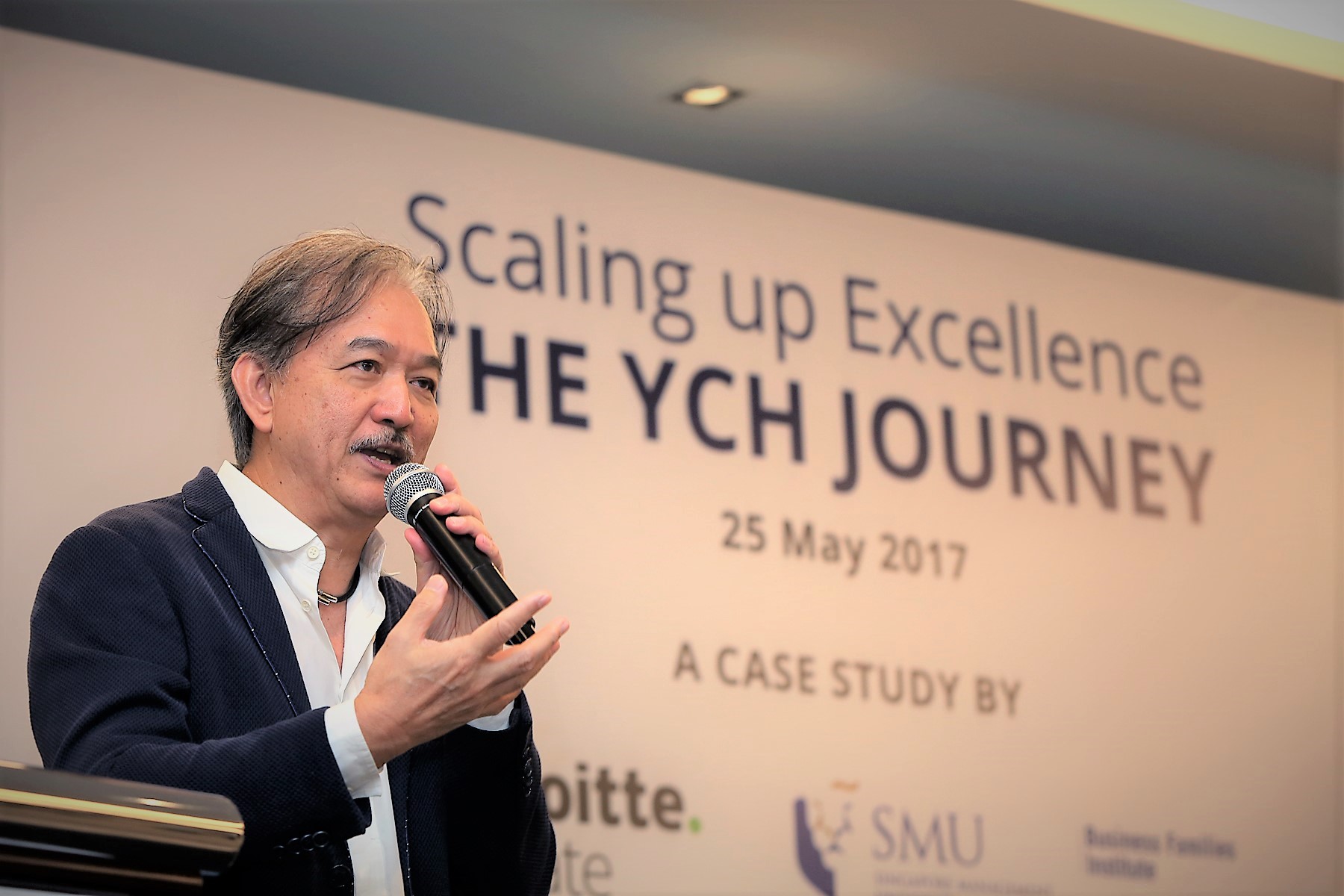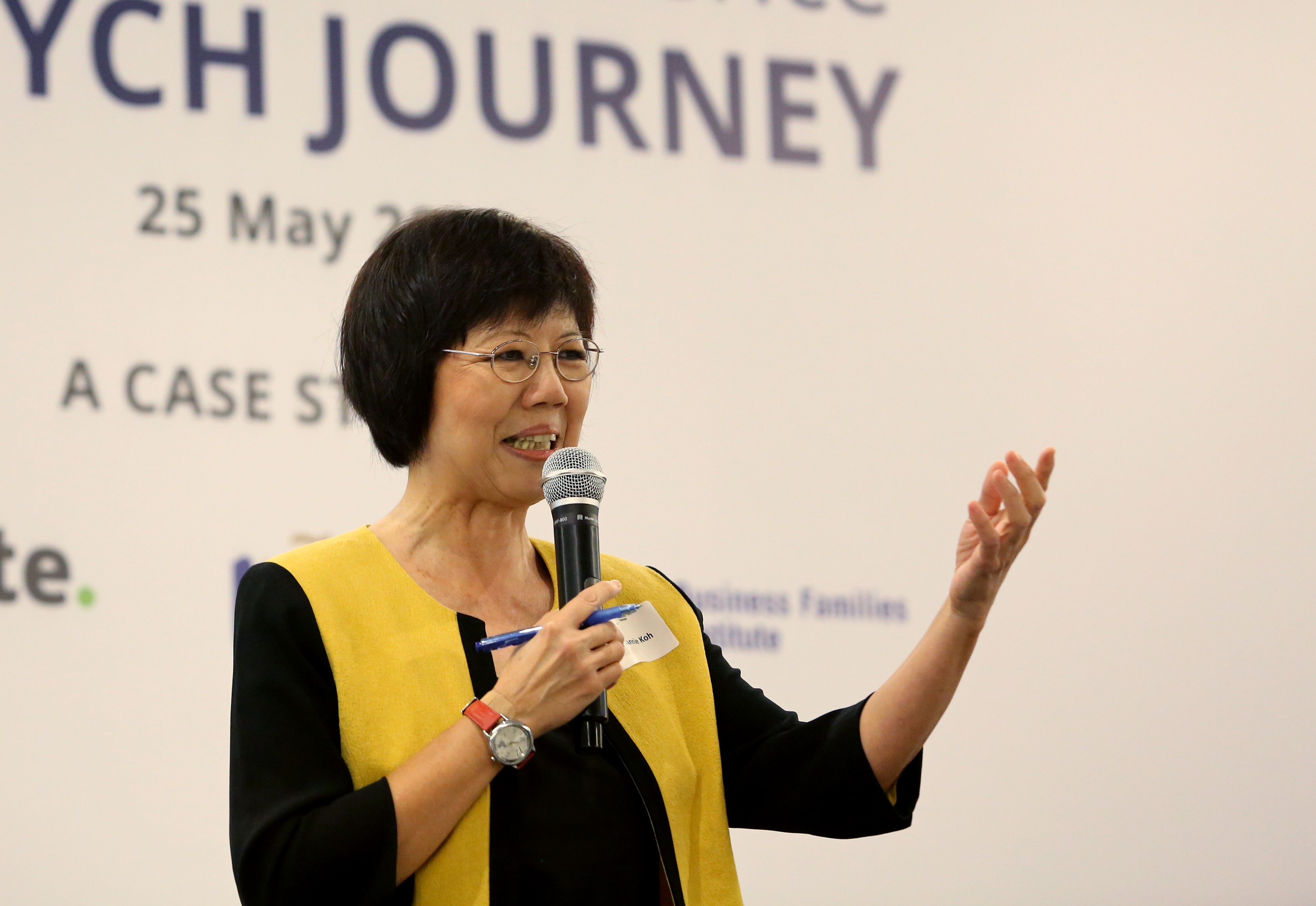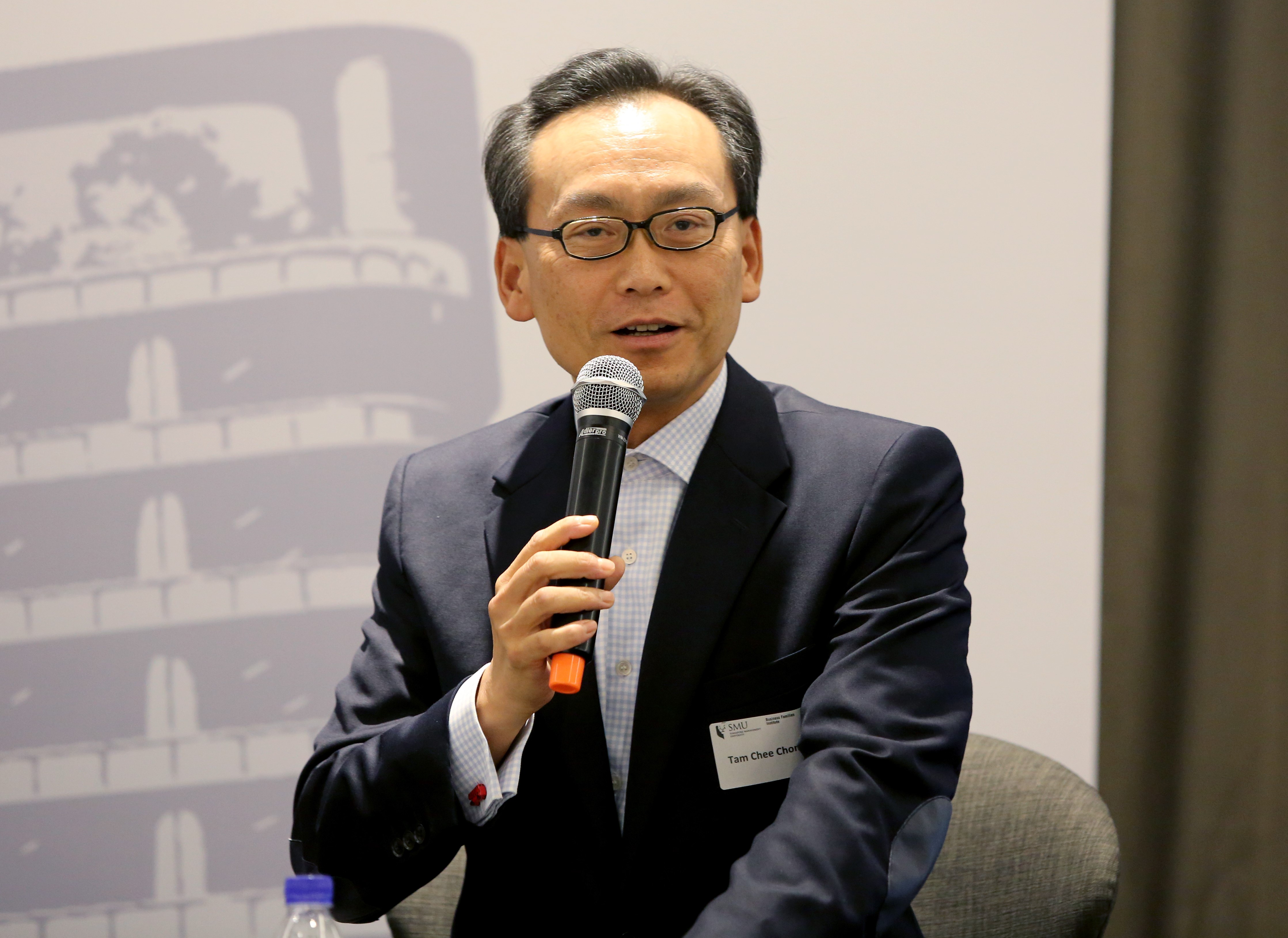Foresight and vision of its leader, in addition to a proactive approach towards innovation in the face of disruptions, are imperative to the long-term sustainable growth of family businesses. This was a key takeaway in a case study titled ‘Scaling up Excellence – The YCH Journey’ released by Deloitte Southeast Asia (Deloitte) and Singapore Management University’s (SMU) Business Families Institute (BFI) on 25 May 2017 at an event held at the Supply Chain City. The event was held before an audience of more than 100 guests and business family members, including some who came from across the cause-way in Malaysia.
The second of four case studies under the Deloitte-SMU BFI Case Study Programme, this case investigated the key factors which contributed to the successful and sustained growth of the YCH group (formerly known as Yap Chwee Hock Transport and General Contractor) over the last 62 years.
What started as a small family-run passenger transportation company in 1955 is today the region’s leading supply chain partner that counts some of the world’s largest MNCs and aspiring growth companies amongst its valued clientele. The case credited the family firm’s success, to a large extent, to the foresight and vision of its Executive Chairman, Dr Robert Yap, who continually transformed YCH beyond its original transportation business into one that encompass multiple sectors within the logistics industry and covered the entire supply chain eco-system.
In fact, the Supply Chain City, where the event was held, is a proof-point of Dr Yap’s long-term vision. Envisioned as Asia’s premier supply chain nerve centre, a key focus of Supply Chain City is to form the impetus for sector innovation and collaboration, bringing together the best names and minds in the industry within a knowledge ecosystem to inspire and define new standards for supply chain excellence. The S$200 million logistics hub also houses state-of-the-art warehousing facilities equipped with the latest supply chain technologies designed for optimal productivity and efficiency.
The case study also highlighted the family’s strong values established by its founder Yap Chwee Hock and continued by Robert Yap, which provided a solid foundation on which the company transformed at critical junctures to overcome business challenges, whilst at the same time tapping on professional expertise of non-family members and strategic partners to enhance capability and competency.

[Photo: Dr Robert Yap speaking at the launch of the case study report on 25 May 2017.]
In his opening remarks, Dr Yap shared that when he was much younger, he thought that family enterprises were at a disadvantage because they had to compete with the biggest companies in Asia and ‘many large customers looked at family businesses with a bit of doubt’. “But over the last decade, I realised that we should all be very proud, because family businesses can also be run professionally, sustainably and responsibly. In fact, family businesses are more sustainable than many other businesses. As we have a reputation to uphold and a legacy to leave behind, we will honour what we commit,” he said.
YCH is also one family firm which has been exemplary in the adoption of technology. It has been a forerunner, investing heavily in information technology since the 1980s. The Group embraces digitisation, innovation and automation to retain its competitive edge and to continue shifting industry paradigms in the pursuit of excellence.
The YCH success story encapsulates Dr Robert Yap’s personal entrepreneurial spirit. In this respect, the Group has also, in recent years, started to promote an enterprising spirit among the young by grooming future leaders and incubating start-ups through a corporate venture fund named Supply Chain Angels.

[Photo: Prof Annie Koh sharing the learning points of the YCH case study.]
Professor Annie Koh, SMU’s Vice President for Business Development, and Academic Director of BFI, said that BFI was set up with the vision of facilitating knowledge-sharing among families and supporting their learning and development. “These case studies, together with past research done by our Institute, will augment our knowledge resource and masterclass teaching materials, and bring tremendous benefit to business families.”
“In writing the YCH case, we recognised the importance of family-owned enterprises like YCH as strategic assets of the country. Going forward, we see opportunities for government and family-owned SMEs to build a sustainable future for Singapore,” she added.

[Photo: Mr Tam Chee Chong from Deloitte Private, speaking at the panel discussion.]
Mr Tam Chee Chong, Leader of Deloitte Private in Southeast Asia, shared, “In today’s evolving market conditions, private companies face a whole range of complex challenges that affect not only the success of the business enterprise but also impact the professional and personal goals of their owners. The YCH Group is a successful example of how an enterprise adjusted its course to respond appropriately to market opportunities, embraced innovation and continues to invest in people and technology.”
Mr Tam opined that the family business segment has massive growth potential, especially with a thriving start-up community and the rise of entrepreneurship among young people. “Through our research collaboration with BFI, we hope to share knowledge and best practices within the private client segment,” he added.
This is the second of four case studies under the Deloitte-SMU BFI Case Study Programme. The first case study on Myanmar’s KBZ Group was launched in November 2016. Deloitte and SMU BFI will develop two more case studies of business families in Indonesia and the Philippines in the coming year. This joint case study project is part of a three-year Business Family Research Programme made possible by a generous research grant from Deloitte to SMU BFI in 2014.
[Featured Photo: A lively panel discussion moderated by Professor Annie Koh (far left), SMU Vice President for Business Development and Academic Director of SMU BFI. Panel members comprised (left to right) Mr Max Heinemann, CEO of Heinemann Asia Pacific; Mr Teo Ser Luck, Minister of State for Manpower; Dr Robert Yap, Executive Chairman of YCH Group; Mr Yeo Zhi Wei, CEO and Founder of Spaceship; Mr Tam Chee Chong, Deputy Managing Partner of Markets Singapore, and Leader of Deloitte Private, Southeast Asia.]
- End -
Please contact the SMU Business Families Institute if you are interested to find out more about the case study ‘Scaling up Excellence – The YCH Journey’.